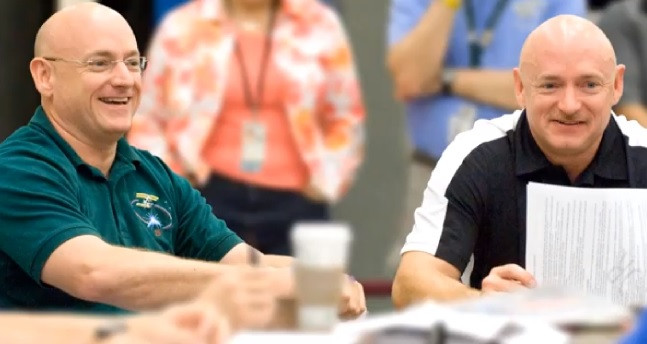Nasa Launches Twin Astronauts Study

Nasa has announces plans to explore a new frontier with the first twin astronaut study, to further understand the effects of spaceflight and weightlessness on the human body.
Identical twin brothers Mark and Scott Kelly, aged 50, will participate in the year-long mission in March 2015. Scott will be sent to the International Space Station, which will be the longest stay on the ISS to date. Typically, the astronauts stay on the ISS for six months, with the exception of some Russian cosmonauts on board the Mir space station.
Mark, the husband of former Arizona Congresswoman Gabrielle Giffords who was wounded during an assassination attempt in 2011, will remain on Earth to serve as the experimental control group. He retired from Nasa and the Navy to spend time with his injured wife.
Craig Kundrot, deputy chief scientist of Nasa's Human Research Program, said in a statement: "We realised this is a unique opportunity to perform a class of novel studies because we had one twin flying aboard the International Space Station and one twin on the ground. We can study two individuals who have the same genetics, but are in different environments for one year."
Nasa's Human Research Program will fund a total of 10 experiments during the study, which will require blood, urine, saliva and stool samples from the twins, as well a regular physiological and psychological evaluations during and after the mission. The National Space Biomedical Research Institute will partner with the HRP.
The study will provide researchers with data on how spaceflight affects the human body. While examining the effects of weightlessness, genetic changes due to space radiation exposure and bacterial changes in body systems will also be monitored.
As the information will be only based on two people, the data will not be concrete. Yet it is hoped researchers will be given indications on where to focus on future, larger studies.
Behavioural thinking processes, overall physiology and bone density changes will also be studied. It is hoped the twin mission will give an insight into the tolerance levels of astronauts on extended stays on the ISS.
This study could also yield additional information that could be significant for the manned mission to Mars, which could involve three years of space-time and expose astronauts to large amounts of space radiation.
Graham Scott, chief scientist for the National Space Biomedical Research Institute (NSBRI), told Tech Times: "This pilot project will, for the first time in space, integrate physiology with 21st century techniques currently performed at leading medical schools and hospitals."
A set of non-identical twins also announced their plans to participate in a bitcoin-funded Virgin Galactic space flight. The Winklevoss brothers, who are both investment capitalists, are paying the equivalent of $250,000 for the experience.
Virgin Galactic is offering trips into sub-orbital space, whereas the NASA mission will reach Earth's orbit. It is thought the Winklevoss brothers will fly into space on the Space Ship Two. The spacecraft can accommodate two pilots and six passengers per flight and will launch from a central control vessel called White Knight Two, a jet-powered cargo aircraft.
© Copyright IBTimes 2025. All rights reserved.






















